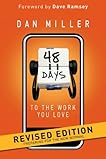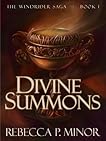 48 Days to the Work You Love by Dan Miller
48 Days to the Work You Love by Dan MillerMy rating: 3 of 5 stars
This book will help you if you're looking for a traditional job. It contains advice on resume writing and job search tactics, and a thorough section on interviewing skills.
But if "the work you love" is nontraditional -- freelance work or self-employment -- look elsewhere. Despite the author's admission that "the new normal" includes more such work, the job-hunting sections assume that "work" means a place on a corporate payroll. There are only two chapters about self-employment. The first spends a lot of time convincing you it can be done--but doesn't give details about how. The other offers a bunch of anecdotes, but no tactics for starting a business or advice for freelancers.
The sections on self-discovery -- figuring out who you are and what kind of work might be "the work you love" -- are also pretty flimsy. So look elsewhere if you're trying to discover what work is a good fit for you.
Some parts of this book are quite inspirational, but ultimately I can't recommend it. In addition to scattered typos ("tot" instead of "to" -- in all-caps, no less; an R missing from "unfotunately"), there's a clear lack of proofreading and fact-checking. The name of the famous missionary David Livingstone is misspelled, omitting the final E. The average time Americans spend in a job is variously given as 2.2 years and 3.2 years. One of them may be right, but which?
Most troubling to me is the repetition of the Shackleton advert myth. It only takes a Google to learn that this anecdote remains unsubstantiated despite the best efforts the Antarctic Circle organization to prove it. Miller's inclusion of this misinformation leads me to wonder what else in the book may be incorrect.
View all my reviews

